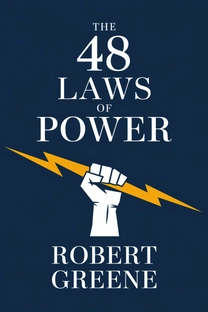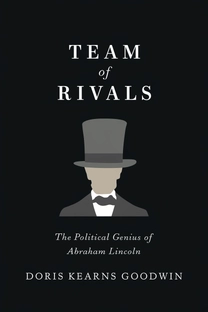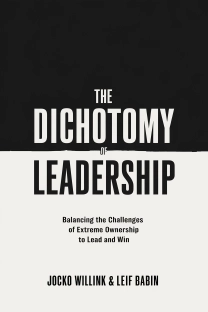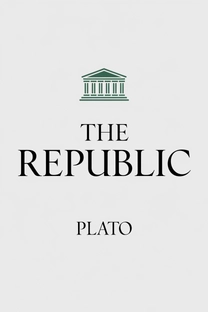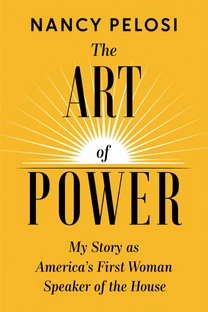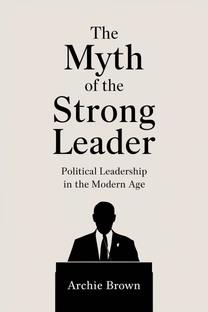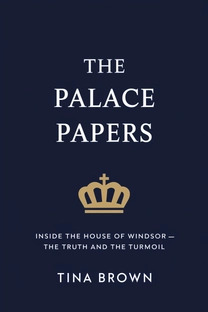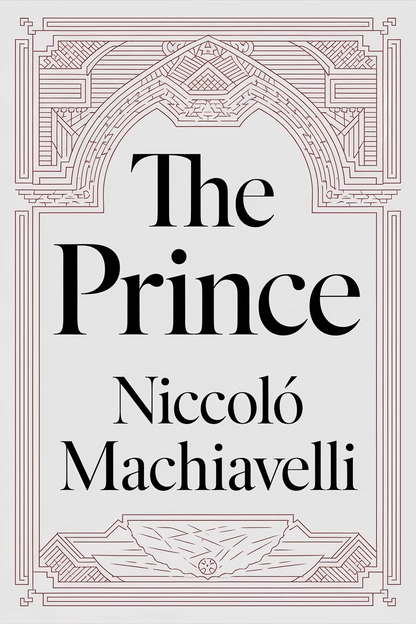
The Prince
by Niccolò Machiavelli
Brief overview
This book explores the strategic thinking behind acquiring and maintaining power in turbulent times. It outlines key principles such as when to be merciful or ruthless, the influence of fortune, and the importance of a strong defense. By reading it, you will gain fresh insights into power dynamics that continue to shape leadership even today.
Introduction
Imagine living in a world where every neighboring region might be a threat. This environment demands leaders who are quick on their feet and unafraid to make tough calls. In this introduction, we set the stage for an exploration of power—how to obtain it, keep it, and sometimes sacrifice moral ideals to ensure a region’s stability. This book is steeped in the politics of Renaissance Italy, where fierce rivalries determined the fate of entire cities. Yet the core lessons remain surprisingly relevant: intriguing discussions about appearances versus reality, the benefits of a sturdy citizen army, and how fear can be a more dependable asset than love. At its heart, it's a guide for those who aim to succeed in a world shaped by ambition and risk.
The text reminds us that genuine leadership often diverges from the comforting stories we like to tell about fairness and kindness. Instead, it delves into the gritty realities of governance: forging alliances, knowing when to punish or pardon, and most crucially, understanding the nature of people—both as individuals and as masses.
Set aside modern sensitivities for a moment, and let your mind open to the pragmatic wisdom on display. There’s a method to the seemingly harsh logic proposed. By grappling with these ideas, you’ll uncover a timeless perspective on leadership that prizes practicality above all else.
The Shifting Political Landscape
Turbulent politics shaped much of Renaissance Italy, making or breaking leaders overnight. States rose and fell with dizzying speed, and those who failed to adapt often lost their lives, not just their offices. This environment formed the backdrop for calculating strategies about territories, alliances, and popular sentiment. When a leader conquers new regions, it’s tempting to impose sweeping changes immediately. But the text suggests that wise rulers preserve familiar structures, harness local goodwill, and only shift what must be changed. The goal is stability—the fewer disgruntled citizens there are, the less likely a revolt becomes.
Moreover, different types of states require distinct approaches. If you inherit a peaceful domain, you can lean on established customs and loyalty. However, if you win a domain by force or cunning, ruling effectively becomes trickier—rival factions might challenge you, and locals might resist forms of taxation or military conscription.
In short, stability starts by knowing the landscape—literally and politically. Understand who wields influence, which old grudges simmer beneath the surface, and what strategic relationships can keep you secure.
What is The Prince about?
One of the most seminal works on political philosophy, The Prince by Niccolò Machiavelli dissects the delicate art of ruling amidst the volatile politics of Renaissance Italy. This guide offers strategic insights into the acquisition and retention of power, presenting a starkly pragmatic approach that dismisses conventional morality. By exploring themes like the duality between virtue and vice, fortune and control, and fear versus love, Machiavelli provides timeless axioms still relevant to modern leadership dynamics.
At the heart of The Prince is the bold assertion that the ends often justify the means. This maxim, revered and scorned in equal measure, highlights how rulers can employ cruelty, deceit, and shift moral boundaries to sustain their reigns. By advising when to be ruthless or benevolent, the importance of culling internal dissension, and the strategic use of warfare, Machiavelli presents a model of leadership built on resilience and adaptation. This masterpiece remains a staple for readers keen on understanding the realpolitik foundations of governance and power.
Review of The Prince
The Prince by Niccolò Machiavelli stands as a cornerstone of political strategy, renowned for its audacious examination of power dynamics. Its strength lies in its unyielding pragmatism, offering strategies that go beyond the facade of morality. Machiavelli's prose is straightforward yet profound, guiding leaders on how to navigate complex situations by juxtaposing virtue with cunning decisiveness.
The practical takeaways are manifold, illuminating the necessity of adaptability in leadership. The text underscores a cautious approach to generosity, advocating for fiscal prudence to avoid unwanted financial strains on a state. Furthermore, it advises maintaining a robust and loyal military, emphasizing the pitfalls of relying on mercenaries. Machiavelli articulates a leader’s need to often balance ethical pliability with strong allegiance, ensuring political stability and longevity.
While its views may seem cold or cynical, The Prince provides insights that resonate even in contemporary settings, especially for those in positions demanding decisive leadership. The book appeals to students of political science, historians, and strategists, making it a vital read for anyone seeking to understand the nuances of authority. Machiavelli concludes confidently that embracing certain unpleasant truths about power can propel ordinary leaders into figures of historical significance.
Who should read The Prince?
- Political strategists looking to enhance their understanding of foundational power dynamics that are still reflected in modern governance.
- Historians and scholars who aim to explore Renaissance Italy's political landscape through the eyes of a contemporaneous thinker.
- Business leaders and executives who want to gain insights into strategic planning and crisis management.
- Philosophy and political science students interested in studying the interplay of ethics, power, and governance.
- Avid readers seeking intellectual delights in timeless works that have influenced historical and modern political discourse.
About the author
Book summaries like The Prince
Why readers love Mindleap
10-Minute Book Insights
Get the core ideas from the world's best books in just 10 minutes of reading or listening.
Curated For You
Discover your next favorite book with personalized recommendations based on your interests.
AI Book ExpertNew
Chat with our AI to help find the best book for you and your goals.
Reviews of MindLeap
Love how I can get the key ideas from books in just 15 minutes! Perfect for my busy schedule and helps me decide which books to read in full.
Alex R.
The summaries are incredibly well-written and the audio feature is perfect for my commute. Such a time-saver!
Jessica M.
Great app for personal growth. The insights are clear and actionable, and I love how they capture the essence of each book.
Chris P.
The app is beautifully designed and the summaries are top-notch. Definitely worth every penny!
Sarah K.


